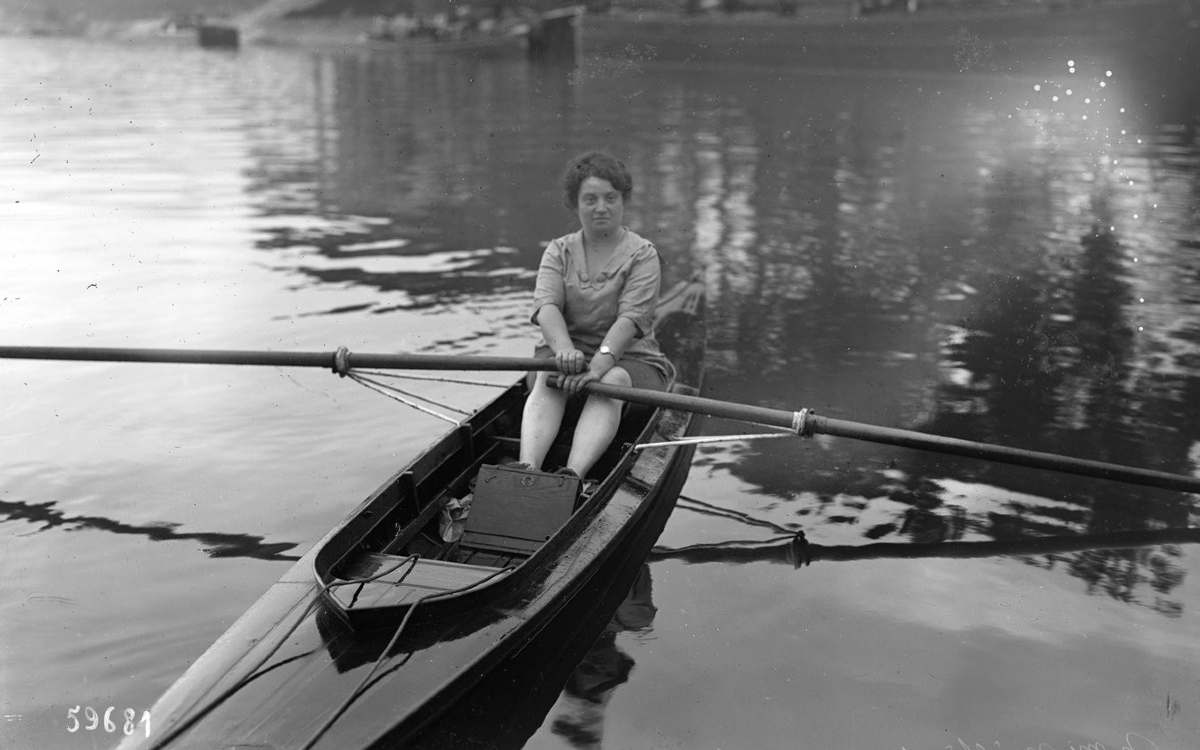Content
Cette page est aussi disponible en français
The relatively little-known figure of Alice Milliat was an early advocate for women's sport and feminism in the 20th century. She helped organize the first Women's Olympic Games in Paris in 1922.
Alice Milliat was a versatile and accomplished sportswoman and a committed feminist at a time when women's structures were non-existant. Sadly, her efforts were never really recognized or brought her fame yet she is a key figure in the women's sports movement.
She organized the first Women's Games
Born in 1884, the daughter of Nantes merchants, Alice married Joseph Milliat in 1904 in London. Their marriage lasted only 4 years, until Joseph's death. She lived in England until 1908, where she was introduced to soccer and rowing.
On her return to France, she spoke English and decided to quit her job as a schoolteacher. She took up rowing, swimming and field hockey. Lamenting the exclusion of women from international sporting competitions, she championed the cause for their athletic accomplishments to be acknowledged on par with men's. It was a difficult undertaking, as the International Olympic Committee, chaired by Baron Pierre de Coubertin, did not see it that way.
Nonetheless, Alice Milliat organized the first Women's Olympic Games in Paris in 1922, in the Pershing stadium (12th arrondissement). At the time, she was president of the Fédération sportive féminine internationale (FSFI), which she had helped to found a year earlier.
Thanks to intense lobbying by Alice Milliat and other sportswomen, women's games were gradually integrated into international competitions. In 1928, women were finally allowed to take part in the Amsterdam Olympic Games. For her part, Alice Milliat tried to keep the international women's sports federation alive. But her frail health and the difficulties finding funding for the federation forced her to resign as president.
Little by little, she faded from the sporting scene, returning to her work as a typist and translator. She died in Paris in 1957. Buried in a family tomb in Nantes, she is not even mentioned on her own tombstone.
Better representation of women in the public sphere
Long overshadowed by Pierre de Coubertin, the name of Alice Milliat is gradually resurfacing. This singular sportswoman fought fiercely to ensure that sport was no longer exclusively for men.
Her fight still resonates now, with women still accounting for just 38.5% of sports licenses (2018) in France according to the Ministry of Sports.
A gymnasium in the 14th arrondissement of Paris bears the name of Alice Milliat in remembrance of her. The esplanade of the new Arena at Porte de la Chapelle will also bear her name.
This approach to naming is also indicative of the intent to enhance the representation of women in public spaces by dedicating roads and facilities to notable women.
Further reading in our Olympic Games series:
Going further
We want to hear from you!
Was this information useful to you?
Please note: we cannot reply via this form (please do not include any personal information).
